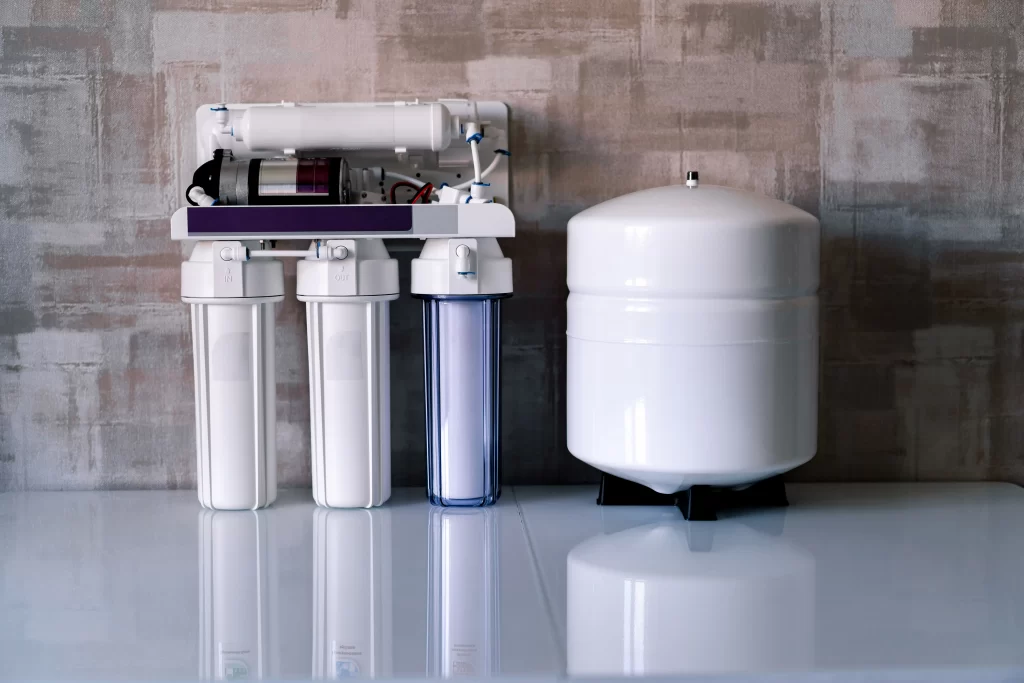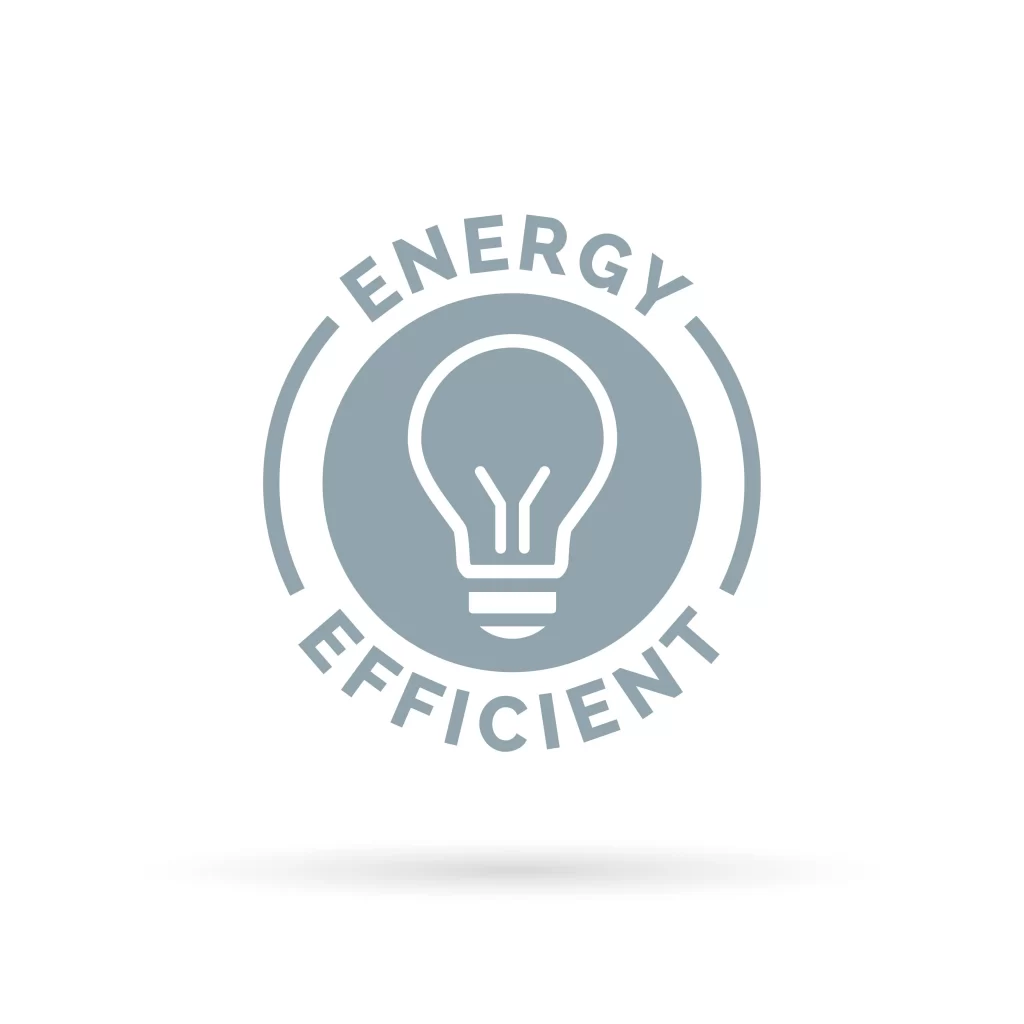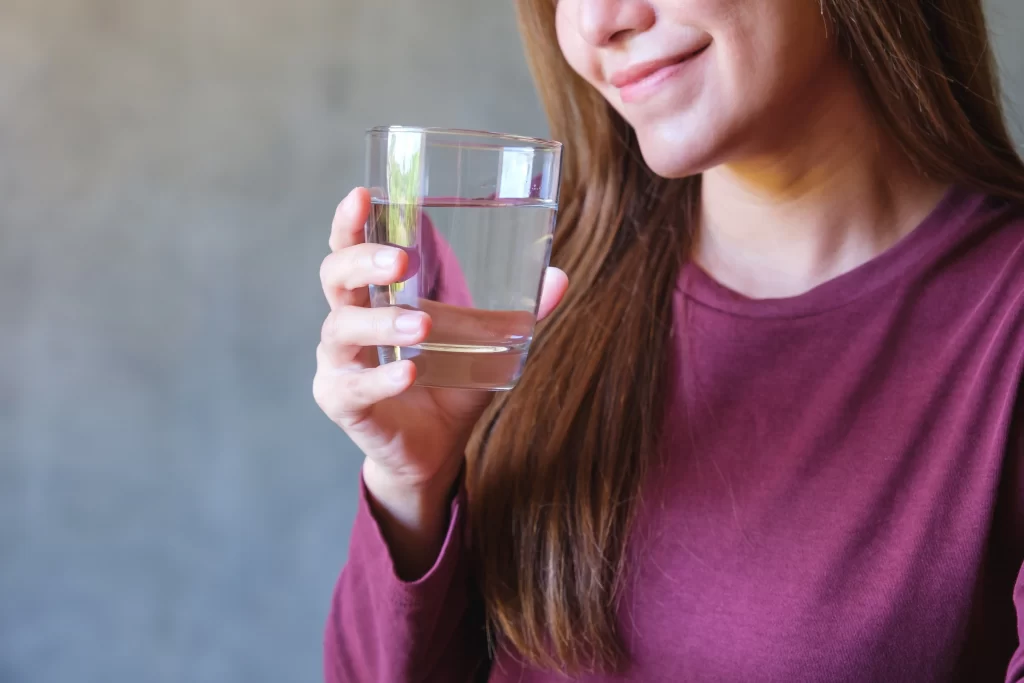Nothing beats the feeling of independence that comes with setting sail on the broad sea. However, liveaboard sailors know that maintaining a fresh water supply on board can be difficult. That’s why having access to a water maker on your sailboat is so useful. Additionally, those who live off the grid can benefit from water osmosis filter systems, but they must also consider power consumption.
How Does A Reverse Osmosis Filtration System Work?
Reverse osmosis water filtration systems are an advanced water purification technique that the US Navy initially created to produce drinking water from seawater for submarine sailors. Pressure is used to push water through microscopic gaps in a semipermeable membrane, resulting in purified water on the other side.
Before forcing water through a semipermeable membrane to remove dissolved solids, a reverse osmosis system filters sediment and chlorine with a pre-filter. A postfilter refines the water before being piped to a special faucet. Per the number of prefilters and post-filters, reverse osmosis systems are divided into stages.

Energy Consumption in Reverse Osmosis Technology
It would be very difficult to provide freshwater without using any energy. Although freshwater may be freely available below ground, it requires energy to be pumped to the surface. Using a pumping head of 100 to 200 feet, the energy consumption for extracting fresh water from the groundwater source is 0.14-0.24 kWh/m3.
Desalination is an unconventional water treatment method used to extract freshwater from surface and ground waters with high amounts of dissolved solids (TDS). Since its inception, reverse osmosis (RO) technology has made great strides in both small-scale and large-scale desalination applications worldwide.
To put things in perspective: In a reverse osmosis plant, 3 to 10 kWh of electric energy are typically needed to produce one cubic meter of freshwater from seawater. Another important factor affecting the overall cost is the fixed expenditures in a traditional reverse osmosis desalination plant. Numerous elements, such as the factory’s location and the technology employed, affect the fixed cost.

Is There A Way To Reduce Energy Consumption?
Even though modern refrigerators and water makers are significantly more energy-efficient than their forebears, they will still consume the most power of any boat system. Consider high-efficiency solutions if you don’t want to operate your generator or drain your batteries all the time.
Compared to standard, engine-driven water makers, our energy recovery desalinators for boats can slash power consumption by as much as 80%. For instance, our desalinator systems are so energy-efficient that they only use 240 Watts to create 60 liters of drinking water. In addition, because they use less electricity than other reverse osmosis systems, they produce less than 85% less CO2 emissions when producing drinkable water.
Eco-friendly water production is now possible thanks to Schenker marine water makers. Because of their efficiency, Schenker water makers can be powered directly by service batteries.

Why Trust Cruise RO Water and Power for Your RO Needs
Our design and manufacturing strategy for water makers is straightforward: Create a product that is simple to install, use, maintain, and repair. Most significantly, though, we accomplish it without charging extra for “Marine” or “Cruising Gear.” Instead of locking you into expensive consumables or replacement-parts arrangements, we create a low-cost water maker that uses standard components.
As a result of using our service, not only will you save money, but you will also receive an improved water maker at a lower cost. Cruise RO Water and Power is a crew of full-time cruisers. We strive to meet the needs of our fellow cruisers by providing them with tried-and-true, low-cost options for Water Makers, Power Generators, and Marine Refrigeration.
Frequently Asked Questions: How Long Do RO Systems Last?
How Long Does It Take for a Reverse Osmosis System to Make Fresh Water From Saltwater



